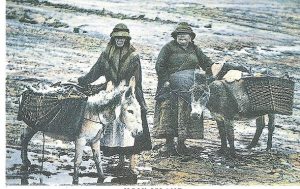The best thing about birthdays is that it’s just your day – as long as you don’t count the 18,999,999 other people in the world who share it. Christmas is for everyone – inlcuding people of other religions and no religion at all – but birthdays are yours alone. You’re the only one who’s special for a whole day. Unless you’re a twin or more.
That’s why there has to be a fuss.
I know there are perfectly pleasant, loving people who do no more on birthdays than exchange polite greetings and money to buy their own present. Dull!
Not in our house.
B irthdays mean balloons and treats, cake, candles and indulgence and lots of presents – the dafter the better.
Two years ago my husband bought me a trip to New York. This year he went to a great deal of trouble to find a recording of Autumn Days – a witless, mindless, senseless song that primary school children sing instead of hymns. It is truly appalling with dubious grammar, a cavalier approach to the truth and a wishy washy, mimsy approach to religion. The sort of mental sugar that rots the infant brain. I loathe it, absolutely loathe it.
What’s more, he even managed to find a terrible rendition of it. So dire, that you cannot believe anyone ever dared post it on You Tube.
No wonder he cackled as the played it while I enjoyed breakfast in bed.
There were other presents too, of course, (Autumn Days was quite funny but if it had been the ONLY present, I might just have killed him.) – books and pictures, cheese, cider, liquorice sticks and a train trip. Videos and Whats App calls from sons and grandchildren, an outing, a meal, general jollity.
It’s like being a child again when it’s your birthday all day…
I ended the day eating a liquorice stick and listening, again, to the awful Autumn Days.
One day we might get to the stage where we do nothing on birthdays but exchange Marks and Spencer tokens.
But not for a long time yet…



